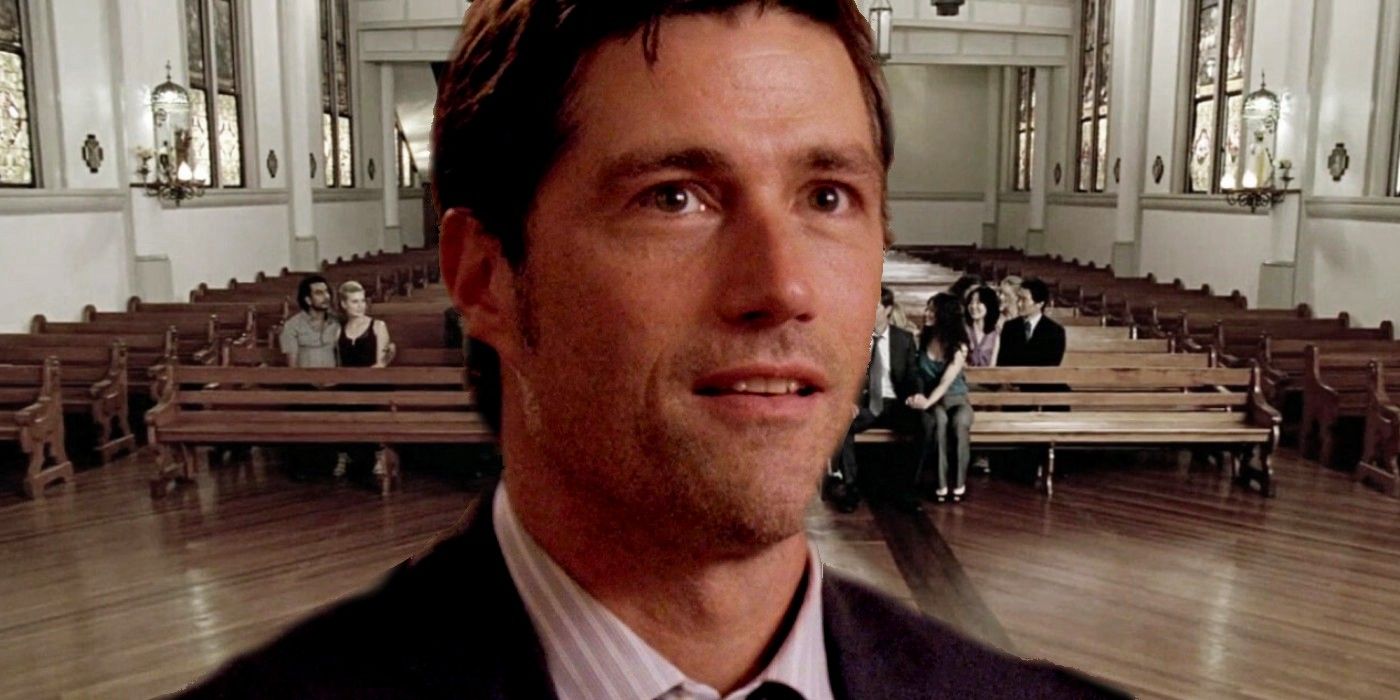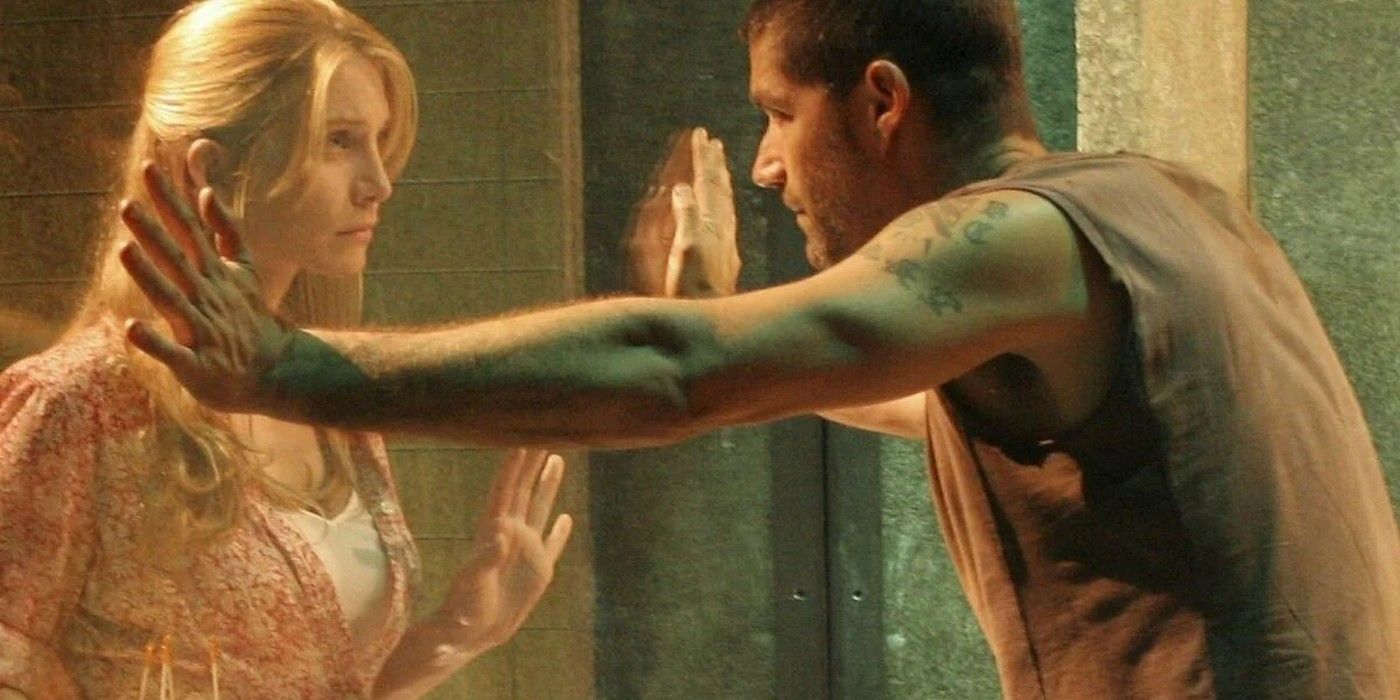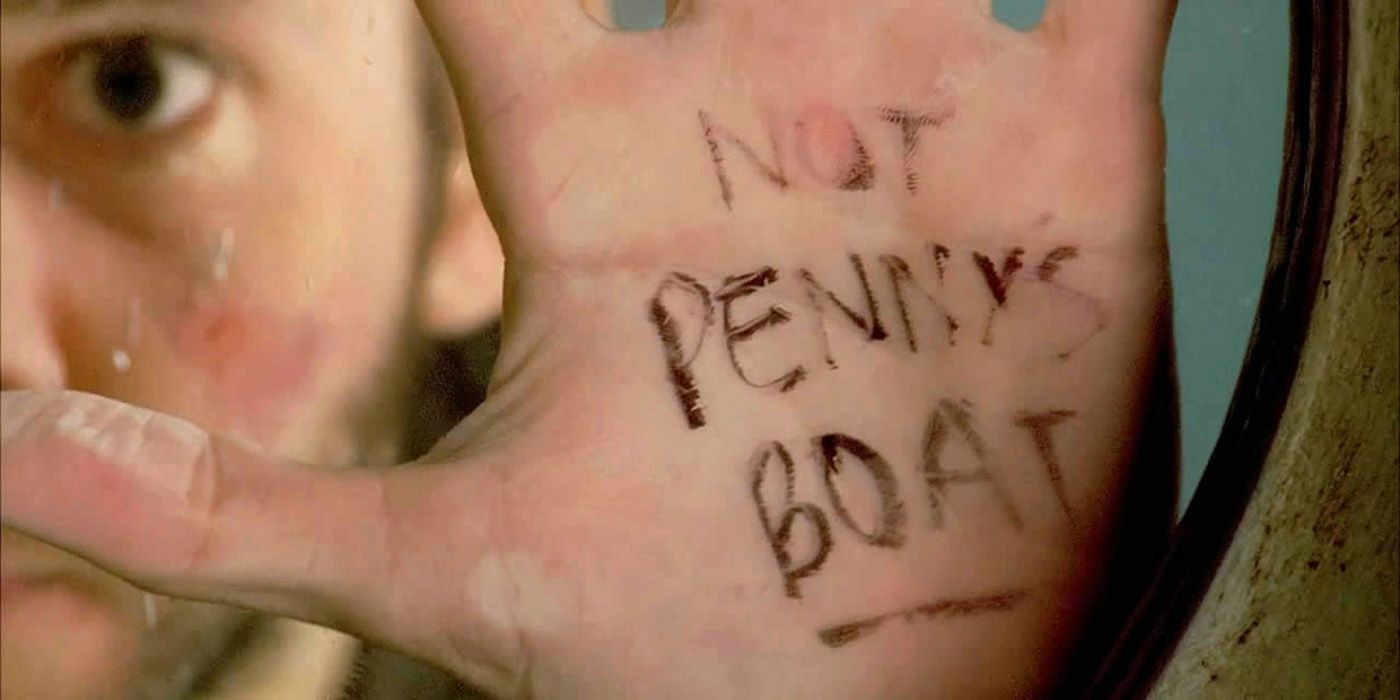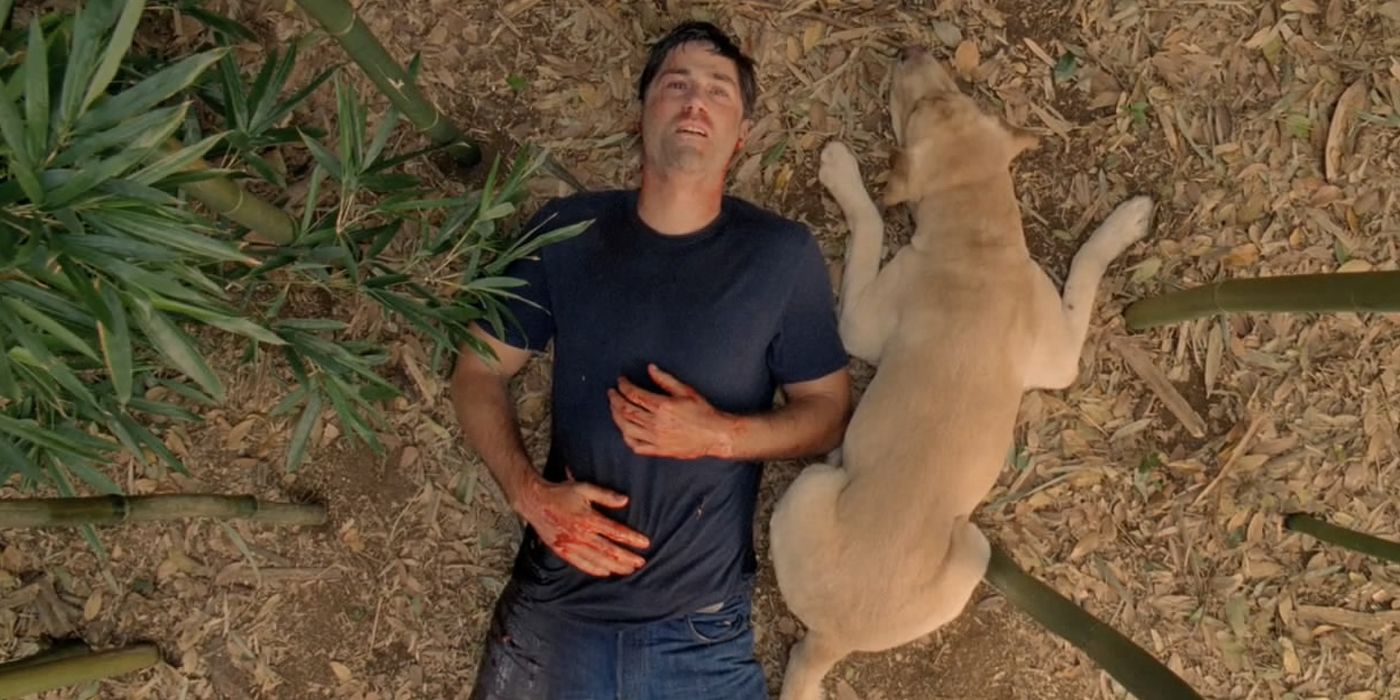It's now officially a decade since fans waved goodbye to Lost's mysterious island one last time and the finale remains as controversial as ever, but "The End" deserves far more credit. Lost was nothing short of a phenomenon when first airing on ABC in the September of 2004, viewed as heralding in a golden age of high-concept, cinematic television with big budgets and ensemble casts. And Lost certainly made a splash when it first landed, attracting rave reviews and immediately becoming one of the biggest productions in network TV history, elevating the status of everyone involved, both behind the scenes and in front of camera.
Despite earning a passionate fan base who would follow Lost every confounding step of the way, that early level of success would not last indefinitely. As the seasons progressed, Lost began to lose viewers, lose interest, and most worryingly, lose its way. After a twisting tale that encompassed time travel, immortality water and a near-apocalypse (probably?), Lost was wound up with its sixth season and all eyes were on the final two-parter. Predictably, "The End" was a divisive and controversial episode that still has many vocal critics 10 years later. Indeed, Lost's finale spent much of that period almost as a byword for "bad TV ending" and that would probably still be the case today if it wasn't for Game of Thrones.
Lost's finale was accused of leaving too many questions unanswered, of being vague and obscure, and of dropping a heavy-handed religious metaphor every 5 minutes. And, essentially, that's all completely true. But what those negative assessments miss out is that almost all of "The End"'s flaws are rooted in mistakes from earlier seasons; holes that Lost dug for itself and left the finale to deal with. Despite the negative appraisals, did Lost's final chapter actually make the best of a deeply complex and unorganized narrative, atoning for some of those long-standing problems?
Lost Started To Go Wrong In Season 3
Most Losties can agree that the first two seasons of island madness were nigh-on untouchable in terms of building mystery, creating characters and telling stories. Undoubtedly, there was a lot to take in and miss an episode at your own peril, but for two entire seasons Lost was enthralling. Season 3 found itself with two major quandaries. Firstly, audiences were now itching for some answers; Lost's first seasons were excellent at posing the questions, but could their solutions satisfy a rabid fan base? Secondly, by the admission of Lost's own showrunners, there was little sense of direction at this point. While the initial plans of J.J. Abrams and Damon Lindelof sustained seasons 1 and 2, Lost's third season found itself without a road map, and no idea of how long said road was actually going to last.
These issues can be seen and felt while watching, as so much of that 23-episode run can be removed without consequence. Make no mistake, there are some classics in the second half - most of which revolve around Charlie and the iconic "Not Penny's Boat" moment - but much of what comes before is inconsequential. The imprisonment of Jack, Kate and Swayer, the leading of trio of Lost, seems to last forever and puts a chokehold on Lost's biggest strength - its character interactions. As the narrative moves into the world of the Others, only Ben and Juliet are worth investing in (sorry, Karl). It's also no coincidence that season 3 contains the episode everyone hates, "Exposé," and while Nikki and Paulo's ill-fated stint was merely a bottle episode, it highlighted how Lost's momentum had slowed. Season 3 could've been a lean, mean 14 episodes instead of a padded-out 23.
Accordingly, Lost's fourth season was truncated to half-length, a decision partly due to the writers strike but one that Lost would wisely keep until the very end. Aiding Lost's recovery further, the show's ending was now confirmed for season 6, and the definitive goal resulted in brisker storytelling. But despite the upturn in form, Lost seasons 4, 5 and 6 couldn't quite recapture that earlier magic, with the exception of season 4's "The Constant," of course.
That's largely because, by necessity, these seasons were obliged to develop the story and lore of the Island. Mysteries needed paying off, mythology needed to be told and resolution desperately needed to be found. When Lost began, the series was entirely character-focused, even when it came to the big mysteries that had everyone talking. When the polar bear shows up in the season 1 premiere, for example, the audience is invited to ask why a polar bear would be found on a tropical island, thus setting up a mystery. The scene itself, on the other hand, focuses on how the characters react to the polar bear. In later seasons, Lost finds itself juggling with actually having to explain the bear (which was mostly unimportant anyway) and this ethos comes at the expense of Lost's usual tight character focus. Another prime example: Locke's body is entirely taken over by the Man in Black for Lost's final season. Certainly, this allows for a deep(ish) dive into the Island's history and purpose, but it also brings Locke's story to an abrupt end, even though Terry O'Quin is right there on-screen.
So Lost's second half fought with the weight of its abundant unanswered mysteries and took focus off the characters in order to do so. And, coincidentally or otherwise, this marked a turning point in terms of lower viewership and less glowing reviews.
Lost's Finale Deserves More Credit
Some Lost viewers were undoubtedly hoping the finale would essentially comprise two 60-minute episodes where Abrams, Lindelof and Cuse perch on stools in front of a plain background and systematically explain each individual mystery on the show, giving a full, detailed answer for each. In truth, this is the only way Lost could've answered every mystery it created, and that aforementioned trio have admitted to introducing new plot threads (the infamous outrigger chase, for example) with no clear plan on how and when answers would come.
In the face of an insurmountable backlog of story points to address, Lost's finale did exactly what it should've done - focus on the characters. Jack fulfills his destiny and protects the world at the cost of his own life, and this is such a fitting end to his arc as the man who always needed something to fix or protect. No, Lost doesn't properly explain the Heart of the Island and that big stone wine bottle cork, but Jack protects it, and that's the point. How Jack saves the Island is important too. As early as Lost's very first episode, Locke was teasing a battle between good and evil, light and dark, and the final confrontation between Jack and the Man in Black pays this off in fine form.
Every main character finds resolution: Hurley, whose biggest sin was hoarding a stash of food, wins the grand prize, the keys to the chocolate factory, so to speak. Kate strikes the fatal blow against the Man in Black and has a final romantic moment with Jack, and it was always Jack, no matter what Sawyer fans say. For his part, Sawyer leads the escape mission, Ben is offered a shot at redemption and Desmond takes control of his own destiny for once. The heartwarming return of Rose and Bernard, Jack being stabbed in the same place his appendix was removed, and the final shot of Jack watching his friends' plane leave while laying in the jungle all act as poignant callbacks. Where "The End" may not hit in terms of mythology and story (the finale's plot is basically turning the Island off and on again) the episode atones with character moments and emotion.
And then there's the flash-sideways timeline. As a story mechanic, the alternate flash-sideways world is fairly rubbish, there's no getting away from that. Lost spends so much of its fifth season setting up the alternate universe with atomic bombs and time travel and Juliet's death, then uses season 6 to explore the cast's sideways-world lives. In the end, all that really mattered was getting the gang together in the church for the finale. Once inside the church, however, Lost reveals the emotional core of its episode. The post-life gathering to "say goodbye" is cheesy, indulgent and something few shows could get away with, but seeing that group of characters together again and knowing that everyone was able to reunite with a smile after the Lost story ended is lump-in-throat stuff, if a little self-referential. But whatever the church scene was, it definitely wasn't purgatory.
Lost's Biggest Finale Flaws Were Already There
In many ways, Lost's flash-sideways timeline embodies both why the finale was controversial and why it's so underappreciated. The alternate world was a hokey gimmick with payoff that didn't justify the considerable build, but it was a problem that originated as early as season 5. For the finale's part, "The End" made the most of the jigsaw pieces available to it and put together something that was touching, appropriate and conclusive. The same can be said of Lost's oft-mentioned lack of clear answers in the final episodes. Viewers are absolutely right to demand resolution to the copious questions raised over the course of Lost's six seasons, and just as right to call the series out when those details aren't forthcoming. However, that ship had sailed long before Lost's ending. In writing the finale, Lindelof and Cuse had a choice between giving character resolution or giving cold, hard information. To do both would've been impossible and, ultimately, the right choice was made, even if it didn't satisfy everyone. As for accusations of the church being too overt with its religious symbolism, it's worth remembering the lead character is called Jack Shephard and his father's name is Christian. That's right, Christian Shephard. Overt religious symbolism was Lost's wheelhouse from day one.
In assessing Lost's "The End," it's useful to compare the episode to other high-profile finales on extreme ends of the spectrum. Breaking Bad's widely-heralded conclusion is so highly regarded because it capped off a balanced, well-crafted story and followed a run of episodes that had worked continuously to ensure just the right amount of unresolved plot threads were left over. Lost doesn't achieve the same strength because, frankly, it's a messier series. In contrast, Game of Thrones' series finale was roundly panned, and has more or less overshadowed Lost in the annals of controversial TV finales. While the problems Game of Thrones' ending suffered are detailed extensively elsewhere, the overriding bugbear was inconsistency of character. Daenerys goes mad at the flick of a switch, Jon's parentage is rendered meaningless and Bran becomes king for reasons that are yet to become clear. Here's where Lost can claim the moral high ground - doing right by its big names, and therefore finds itself somewhere between those two famous episodes.
The finale of Lost was flawed, of that there is no argument. But considering the problems that were already embedded into the show's DNA, "The End" managed to piece together a striking and unforgettable swansong with its heart very much in the right place. And let's face it, Lost was always going to go out divisive and debated instead of playing it safe with something mundane.





